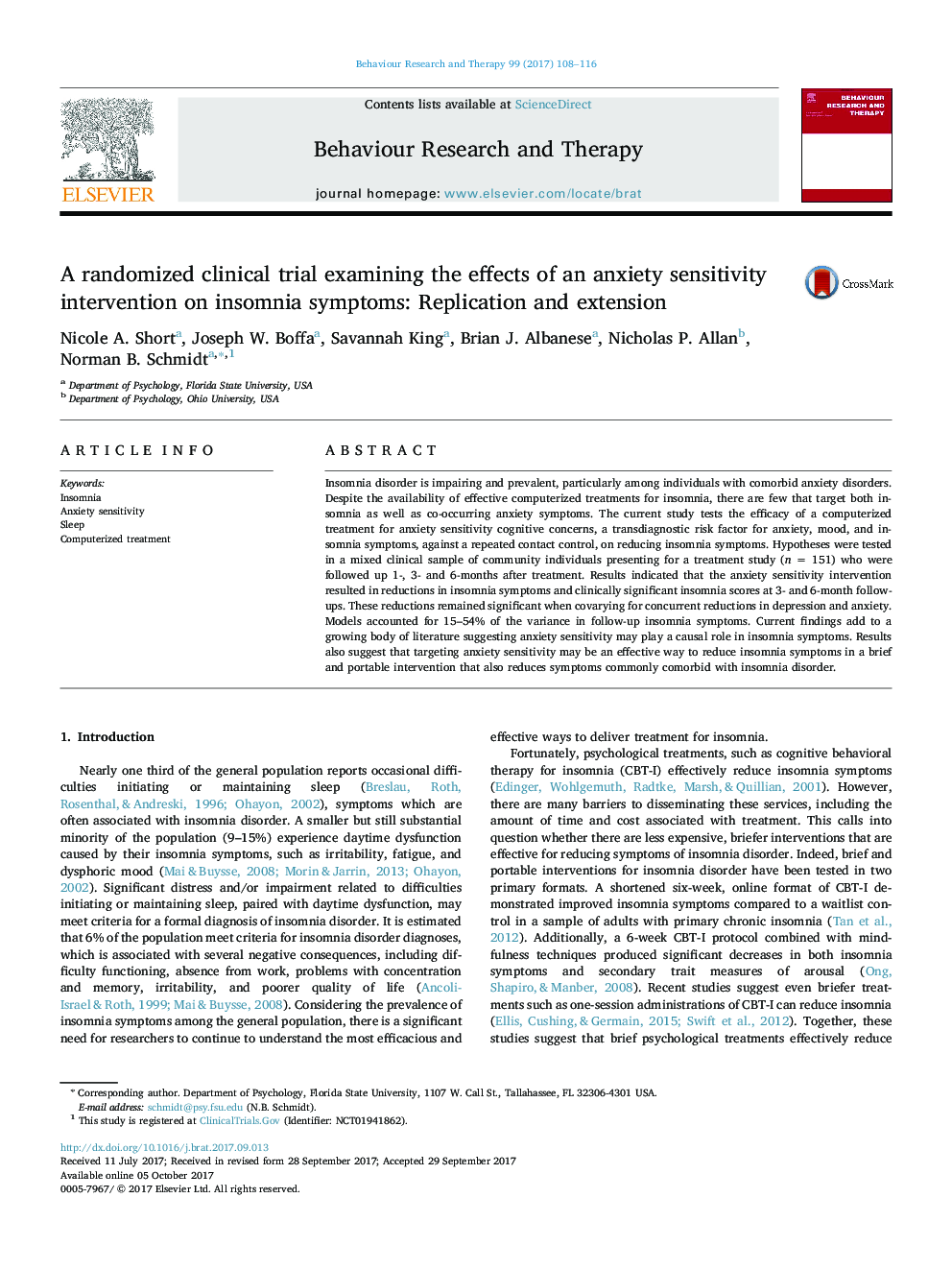| Article ID | Journal | Published Year | Pages | File Type |
|---|---|---|---|---|
| 5038116 | Behaviour Research and Therapy | 2017 | 9 Pages |
â¢Anxiety sensitivity intervention reduced insomnia symptoms and diagnoses.â¢Reductions in insomnia maintained at 3- and 6-month follow-up.â¢These reductions were not accounted for by reductions in depression or anxiety.
Insomnia disorder is impairing and prevalent, particularly among individuals with comorbid anxiety disorders. Despite the availability of effective computerized treatments for insomnia, there are few that target both insomnia as well as co-occurring anxiety symptoms. The current study tests the efficacy of a computerized treatment for anxiety sensitivity cognitive concerns, a transdiagnostic risk factor for anxiety, mood, and insomnia symptoms, against a repeated contact control, on reducing insomnia symptoms. Hypotheses were tested in a mixed clinical sample of community individuals presenting for a treatment study (n = 151) who were followed up 1-, 3- and 6-months after treatment. Results indicated that the anxiety sensitivity intervention resulted in reductions in insomnia symptoms and clinically significant insomnia scores at 3- and 6-month follow-ups. These reductions remained significant when covarying for concurrent reductions in depression and anxiety. Models accounted for 15-54% of the variance in follow-up insomnia symptoms. Current findings add to a growing body of literature suggesting anxiety sensitivity may play a causal role in insomnia symptoms. Results also suggest that targeting anxiety sensitivity may be an effective way to reduce insomnia symptoms in a brief and portable intervention that also reduces symptoms commonly comorbid with insomnia disorder.
